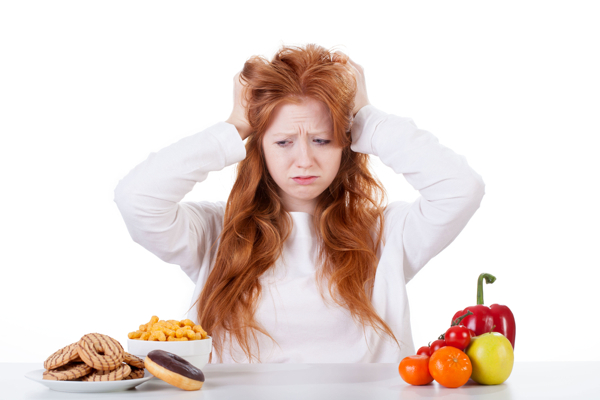
Most people admit that when they’re under stress, healthy eating habits can be difficult to maintain. And that can mean eating to fill an emotional need or grabbing fast food simply because there’s no time to prepare something healthy, which makes a stressed-out lifestyle rarely a healthy one. (1) (2) (3)
And for some, weight gain may be at least partly attributed to the body’s system of hormonal checks and balances, which can be thrown off when you’re stressed out.
What is cortisol?
Cortisol is a critical hormone, secreted by the adrenal glands, that has many actions in the body, including the stimulation of fat and carbohydrate metabolism for fast energy, and stimulating insulin release and maintenance of blood sugar levels. The result of these actions can be an increase in appetite.
Cortisol has been called the “stress hormone” because excess cortisol is secreted during times of physical or psychological stress, and the normal pattern of cortisol secretion (with levels highest in the early morning and lowest at night) can be thrown off balance.
This disruption of cortisol secretion may not only promote weight gain, but it can also affect where you put on the weight. Some studies have shown that stress and elevated cortisol tend to cause fat deposition in the abdominal area. Belly fat or “toxic fat” is strongly correlated with the development of cardiovascular disease including heart attacks and strokes. (4) (5)
Stress and Over-Eating
Overeating or eating unhealthy foods in response to stress or as a way to calm down is a common response. Surveys by the American Psychological Association survey show how high percentages of respondents use food as well as spending more time in sedentary activities i.e. watching television for more than 2 hours a day to deal with their stress. So, it is twofold – being a couch potato increases the temptation to overeat and that inactivity means those extra calories aren’t going to get burned off. (6)
What is emotional eating?
Emotional eating is usually “stress eating” and is all about using food to make yourself feel better—eating to satisfy emotional needs, rather than to satisfy physical hunger. You might reach for ice cream when you’re feeling down, order a pizza if you’re bored or lonely, or hit the fast-food drive-through after a stressful day at work.
Occasionally using food as a pick-me-up, a reward, or celebrating isn’t necessarily a bad thing. But when eating is your primary emotional coping mechanism—when your first impulse is to open the refrigerator whenever you’re stressed, upset, angry, lonely, exhausted, or bored—you get stuck in an unhealthy cycle where the real feeling or problem is never addressed.
Emotional hunger can’t be filled with food. Eating may feel good at the moment, but the feelings that triggered the eating are still there. And you often feel worse than you did before because of the unnecessary calories you’ve just consumed and the weight you can’t seem to lose.
Achieving Weight Loss
So, what can help with weight loss — besides watching why and what you ingest?
- Get your hormone levels checked. If there is too much cortisol in circulation in your body, abdominal fat can develop. This type of obesity is linked to developing cardiovascular disease, type II diabetes, and cerebrovascular disease.
- Get out and move. Many types of aerobic and anaerobic exercise have been shown to be effective in reducing or managing stress. Some of the popular mindfulness practices such as deep breathing, meditation, yoga and Tai Chi are also great for stress management.
- Get counseling. It is okay if you need to seek help to find balance in both mind and body. Sometimes having someone listen, can help you see more clearly where you are failing to understand stress, overeating, and also hormonal health.
1) https://www.health.harvard.edu/staying-healthy/why-stress-causes-people-to-overeat
2) https://www.ncbi.nlm.nih.gov/pmc/articles/PMC6296480/
3) https://www.ncbi.nlm.nih.gov/pmc/articles/PMC2727271/
4) https://www.ncbi.nlm.nih.gov/pmc/articles/PMC3602916/
5) https://www.sciencedaily.com/releases/2018/04/180404093920.htm
6) https://www.apa.org/news/press/releases/stress/2013/eating


